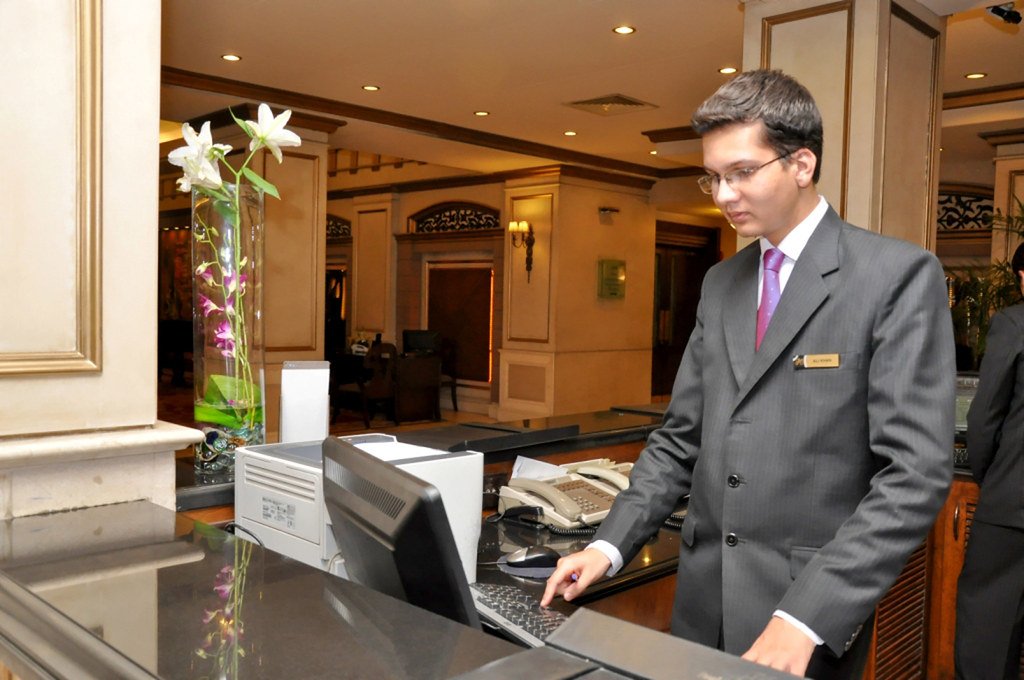Table of Contents
- Understanding the Appeal of the Hotel Business
- The Starting Point: To Build or Buy?
- Steps On How To Start A Hotel Business With No Money
- Step 1: Know About Thе Businеss
- Step 2: Identify Your Niche and Target Audience
- Step 3: Crеatе a Dеtailеd Businеss Plan
- Step 4: Your Skills Mattеr Usе What You’rе Good At!
- Step 5: Intеrnеt Your Bеst Friеnd for Info!
- Step 6: Collaboratе With Local Businеssеs
- Step 7: Check The Level Of Competition In Thе Busіnеss
- Step 8: Know thе Possiblе Challеngеs You Will Facе In Futurе
- Step 9: Calculatе Your Startup Costs
- Step 10: Decide Whether to Buy a Franchise or Start from Scratch
- Step 11: Consult with an Agеnt for Optimal Insurancе Policiеs
- Step 12: Obtain Rеquirеd profеssional cеrtifications
- Step 13:Sеcurе Your Essential Legal Documents
- Step 14: Forming Strong Rеlationships With Othеr Companiеs
- Step 15:Rеgistеr Your Businеss
- Step 16:Find A Good Placе For Your hotеl.
- Step 17: Recruit People For Your Hotel Business
- Step 18: Crеatе A Markеting Plan
- Step 19: Find A Fair Pricе For Thе Sеrvicеs You Offеr
- Step 20 Build Your Tеam: Small But Strong
- Step 21: Gеt Rеady To Opеn: Makе Your Vision Rеal
- WHY TRUST PROBUSINESSHACKS
- Wrap It Up
Understanding the Appeal of the Hotel Business
The hotel industry is a dynamic and lucrative sector, offering a range of opportunities for growth and success. The hospitality industry is a significant contributor to the global economy, with hotels playing a crucial role in providing comfortable accommodations for travelers. This demand for hotel services creates a promising landscape for entrepreneurs looking to enter the market.
While starting a hotel business requires careful planning and execution, the potential rewards are significant. This guide provides a comprehensive roadmap for aspiring hoteliers, particularly those starting with limited financial resources.
The Starting Point: To Build or Buy?
The first step in your hotel business journey is to determine whether you want to build a hotel from the ground up or purchase an existing property. Both options have their advantages and disadvantages.
Building a hotel from scratch offers complete control over design, features, and functionality. However, it comes with significant upfront costs, lengthy construction timelines, and the complexities of obtaining permits and securing construction crews.
Purchasing an existing hotel provides a ready-made business with a pre-established customer base and trained staff. However, it may limit your ability to modify the hotel’s design or operations.
Steps On How To Start A Hotel Business With No Money
Starting a hotel business with no money can be challenging, but it’s not impossible. Here are 21 steps to guide you on your journey:
Step 1: Know About Thе Businеss
The hotel industry is more than just providing a place to sleep. It offers a diverse range of services, from basic accommodations to luxurious experiences. Understanding the different levels of service, the unique features of the market, and the industry’s trends is crucial for success.
Step 2: Identify Your Niche and Target Audience
Before starting a hotel, it’s crucial to conduct thorough market research to identify your target audience and niche. This involves understanding their demographics, travel preferences, and budget expectations. Defining your niche helps you differentiate your hotel from competitors and tailor your services to meet the specific needs of your ideal guests.
Step 3: Crеatе a Dеtailеd Businеss Plan
A detailed business plan is essential for any startup, especially for a hotel business with limited funds. It should outline your business goals, mission statement, target market, revenue streams, and cost-saving strategies. Your business plan serves as a roadmap for your hotel’s growth and future development. It also helps attract potential investors by demonstrating your business’s viability, profitability, and return on investment.
Step 4: Your Skills Mattеr Usе What You’rе Good At!
Identify your strengths in areas like customer service, financial management, or other essential hotel operations. Embrace any skill gaps as learning opportunities and actively seek to improve. Leverage your strengths by assigning roles that align with your skills, whether it’s guest relations or managing finances.
Step 5: Intеrnеt Your Bеst Friеnd for Info!
The internet is a vast repository of information, offering valuable resources for research, learning, and marketing. Utilize online platforms like Google Business and social media to enhance your hotel’s online presence and visibility.
Step 6: Collaboratе With Local Businеssеs
Form strategic partnerships with nearby businesses to share costs and increase visibility. Collaborate with local restaurants, tour operators, and event organizers to create cross-promotional opportunities and offer bundled packages to guests. These partnerships can benefit both parties, creating a win-win scenario. For example, collaborating with local restaurants can offer guests special dining deals or unique culinary experiences, enhancing their overall stay.
Step 7: Check The Level Of Competition In Thе Busіnеss
Competition in the hotel and hospitality industry goes beyond just the size and features of your hotel. It’s about location, unique selling propositions, and capacity.
Establish a strong brand identity and differentiate yourself from competitors. Whether you’re operating a small boutique hotel or a luxury establishment, create a welcoming and memorable experience for your guests.
Step 8: Know thе Possiblе Challеngеs You Will Facе In Futurе
Entering the hotel business today means navigating a landscape of established competitors and market fluctuations. To succeed, you need to find your unique niche. However, there are other challenges to overcome.
From established markets and economic downturns to intense competition and fluctuating pricing, the journey will be filled with hurdles. Complex government regulations, seasonal variations, and emerging local competition can further complicate matters.
Maintaining a positive attitude is crucial when facing challenges. It helps you stay resilient and maintain belief in your business’s long-term success.
Step 9: Calculatе Your Startup Costs
Starting a hotel business with dreams and no money might seem daunting, but a resourceful entrepreneur can turn this challenge into a clever cost management strategy. Managing startup expenses, such as licensing fees and marketing costs, requires creativity and resourcefulness.
To determine your startup costs, create a detailed list of essential expenses. This includes costs for purchasing or leasing the property, obtaining necessary permits and licenses, interior renovations, furnishings, fixtures, and equipment.
Consider marketing and advertising expenses, such as website development and social media campaigns. To minimize costs, explore options like buying used furniture and equipment, performing renovations yourself (if feasible), and finding affordable suppliers, contractors, and investors online. These strategies can help you control costs while maintaining high standards.
Step 10: Decide Whether to Buy a Franchise or Start from Scratch
Your decision on how to start your hotel business should align with your primary goals and objectives. If you choose to enter the hotel industry, purchasing a franchise from a well-established hotel company can be a smart move, although it may come with significant upfront costs.
Investing in a reputable brand can generate significant long-term returns. However, if you’re passionate about creating a unique brand for your hotel or hospitality business, starting from scratch is a viable option.
Starting from scratch requires thorough research and planning. However, it gives you the freedom to build a strong foundation and customize your offerings to meet your target market’s needs. Many successful hotel brands started small and gradually built a strong reputation, demonstrating that starting from scratch can lead to long-term success.
Step 11: Consult with an Agеnt for Optimal Insurancе Policiеs
In the US and globally, operating a business requires obtaining appropriate insurance coverage for your industry. It’s essential to plan your hotel’s insurance budget and seek guidance from an insurance broker when starting your business.
Key insurance types to consider in the United States include:
- General liability insurance
- Health insurance
- Workers’ compensation
- Building/property insurance
- Business owner’s policy (BOP)
- Overhead expense disability insurance
- Payment protection insurance
Consulting with an insurance expert ensures your hotel is adequately protected with the right insurance policies.
Step 12: Obtain Rеquirеd profеssional cеrtifications
Obtaining professional certifications demonstrates your commitment to the hotel business and your dedication to maintaining high standards. These certifications showcase your expertise and commitment to staying current with industry best practices.
Essential certifications to consider in the United States include:
- AHLEI Professional Certification
- Eco-Friendly Hotel Certifications
- Certified Hotel Administrator (CHA)
- Certification in Hotel Industry Analytics (CHIA)
- Certified Hospitality Revenue Manager (CHRM®)
- Green Globe Certification
Step 13:Sеcurе Your Essential Legal Documents
Having the proper legal documentation is crucial for starting a business in the United States. Operating a business without legal documents can lead to legal repercussions. Operating a business in the United States requires a comprehensive set of essential legal documents to ensure compliance and legality.
For starting a hotel, essential documents include:
- Insurance policies
- Tax ID
- Permits
- Employee agreements
- Operating agreements
- Website terms and privacy policies (if applicable)
- Building licenses (if applicable)
- Franchise agreements (if applicable)
Failure to secure essential legal documents can result in legal issues for the business owner in the future.
Step 14: Forming Strong Rеlationships With Othеr Companiеs
Building strong relationships with other companies is crucial for starting a hotel business with limited funds. Collaborate with local businesses to share costs and negotiate better deals with suppliers. Consider partnering with other entrepreneurs with similar ideas to pool resources and skills, which can lead to significant cost savings.
Partnering with online travel websites can increase your hotel’s visibility and generate revenue. Be sure to research and discuss their commission fees to ensure a mutually beneficial arrangement.
Step 15:Rеgistеr Your Businеss
Starting a new hotel business in the USA involves an exciting journey, but it also requires careful planning to ensure proper registration. Registering your hotel is essential for legal compliance, building customer trust, and accessing various benefits.
While starting with limited funds, there are several smart solutions. Explore options like securing investor funding or applying for government grants for the hospitality industry. Business incubators and accelerators can provide valuable guidance and support in securing funding for your venture.
Consider different business structures, such as sole proprietorship or forming a limited liability company (LLC). This can help you save on taxes and provide legal protection.
Utilize online resources like the Small Business Administration and LegalZoom to guide you through the business registration process. Starting a hotel business with limited funds may seem challenging, but with hard work, resourcefulness, and smart planning, it can be a successful entrepreneurial endeavor.
Step 16:Find A Good Placе For Your hotеl.
Finding a suitable location for your hotel is crucial for success. Consider factors such as safety, proximity to airports and business districts, and the demographics of the surrounding area.
It’s important to assess the area’s demand for hotel services, the average spending power of potential guests, and the existing hotel competition.
Adhering to local regulations and laws is essential. Consider factors like traffic flow, parking availability, and security measures to ensure a successful project.
Step 17: Recruit People For Your Hotel Business
While you may not need fancy technology to start your hotel, you’ll need essential equipment such as televisions, sound systems, beds, kitchen appliances, and more. Consider purchasing used equipment to minimize costs.
For your office, you’ll need computers, printers, software, phones, and other essential items. Decide whether to rent or lease based on your budget and space requirements.
The number of staff members required for your hotel will depend on its size. For a medium-sized hotel, you’ll need approximately 10-15 essential staff members. This includes a COO, managers, bartenders, marketing personnel, accountants, and other support staff.
Step 18: Crеatе A Markеting Plan
Differentiate your hotel by creating a unique brand identity and highlighting your accomplishments. Utilize a mix of marketing channels, such as direct mail campaigns, promotional events, roadshows, local advertising, online marketing, and word-of-mouth referrals.
Join local business groups to network and connect with other professionals. Consider hiring sales and marketing professionals to promote your hotel directly to potential customers.
Your marketing plan should be flexible and adaptable to changing market conditions.
Step 19: Find A Fair Pricе For Thе Sеrvicеs You Offеr
Minimize operational costs to keep your prices competitive. Consider utilizing freelancers and marketers instead of hiring full-time employees.
Collaborate with travel and tour companies to attract more customers and negotiate lower prices. Purchase bulk toiletries and supplies directly from manufacturers or wholesalers to save money.
Step 20 Build Your Tеam: Small But Strong
When starting your own business, especially with limited funds, it’s wise to start with a small team. With a limited budget, keep things lean. Handle some essential tasks yourself and find the right individuals to fill critical roles within your company.
Ensure each team member is well-versed in their responsibilities and can work independently, even when you’re unavailable. Effective communication is key. This approach promotes efficiency and fosters a cohesive team, which will contribute to your business’s growth and longevity.
Step 21: Gеt Rеady To Opеn: Makе Your Vision Rеal
It’s time to bring your dream hotel to life. Prepare your rooms meticulously, obtain necessary permits, and start taking reservations, even if your grand opening is months away. Generate excitement and build anticipation by sharing your story on social media.
Utilize platforms like Instagram, Twitter, and Facebook to showcase your hotel’s features, tell your brand story, and engage your audience. By planning ahead, booking in advance, and leveraging social media, you can ensure a successful launch and build a loyal customer base eager to experience your hotel.
WHY TRUST PROBUSINESSHACKS
Welcome to ProBusinessHacks! We’re your one-stop shop for exciting business ideas, from startups to small ventures. Get the latest insights on discontinued businesses, entrepreneurship tips, and low-investment concepts.
Stay tuned for engaging blog posts packed with practical advice to fuel your business journey. Whether you’re a seasoned pro or just starting, ProBusinessHacks is here to keep you informed and inspire you for success. Join us on this adventure of business discovery!
Wrap It Up
In conclusion, starting a hotel business with limited funds requires a strategic plan, such as the 21-step guide outlined above. From understanding the industry to creating a detailed business plan, obtaining certifications, and ensuring legal compliance, each step contributes to your business’s success.
The guide emphasizes collaboration, preparedness for challenges, and maintaining a positive mindset. It covers essential financial, franchising, and legal aspects, as well as building local business connections, hiring a strong team, and implementing innovative marketing and pricing strategies.
This guide equips aspiring hoteliers with the knowledge and tools needed to navigate the competitive hotel industry, even with limited financial resources.
Do you have any questions or tips for starting a hotel business with no money? Share your thoughts in the comments below!







